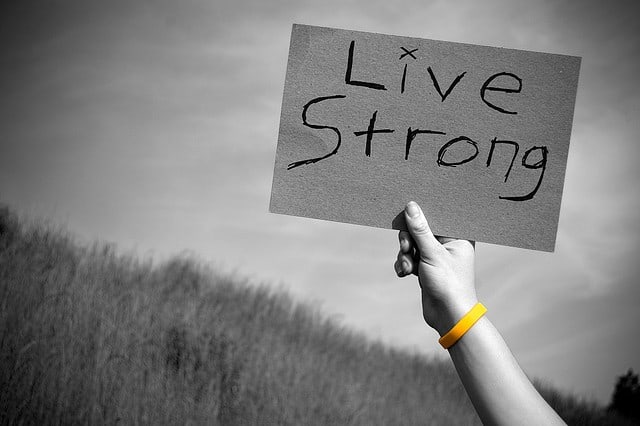Whether you were a Boy Scout or not, you are familiar with the advice to be prepared. In battle, at the office, or qualifying for a merit badge, nowhere does being well prepared pay off more than when facing cancer, for yourself or a loved one.
While there are a lot of factors that determine whether a patient wins his fight against cancer, being prepared is near the top of the list. Here are the top 5 ways to be prepared for the fight of your, or a loved ones, life.
Fight Cancer By Being Prepared These 5 Ways
1. Partner with Experts who can Educate You
The world of cancer treatment is a high-tech, highly charged world that has its own language and its own traditions. You will be unfamiliar with it unless you have been exposed to that world yourself or with someone in your life.
Related Article: Top 5 Cancer Causes Hiding in Your Home
Until recently, your trusted family doctor would be your ambassador to this world, helping to explain the ins and outs of imaging studies, biopsies, surgery, chemotherapy, radiation therapy, hormonal therapies, and the many other procedures done to control and fight cancer’s growth.
For some of us, that primary care provider no longer has the familiarity with a constantly changing world of treatment or the time to translate what is happening out of onco-speak and into everyday English.
Your primary care provider may work with a nurse or physician’s assistant who can do so (or these days may even be an advanced practice nurse practitioner.) But treatment is often at a center of excellence far away from your trusted providers.
Cancer specialists themselves have an obligation to educate a patient and their caregivers about cancer and its treatment, though there is a disparity in the level of teaching ability among physicians and nurses.
Related Article: Why Genes Don’t Determine Whether You’ll Get Cancer
Many cancer centers have health educators, information specialists, oncology social workers, specialized nutritionists, physical therapists, chaplains, and even financial counselors that live in this discrete world of specialized treatment.
2. The Internet is a Great Place to Start your Research, but Not to Finish
Many of us turn to the Internet when there are questions about symptoms, treatments, or potential outcomes. We are all aware that something may not be exactly true because “I read it online”. It is hard to know whether that information is produced by trusted sources.
Many medical journals’ articles are accessible online, located using standard search engines. But they may not be so readily understandable to the non-clinician. Some sites bend the information it prints to sell you a product or device. A minority of sites appeal to your feeling of impotence by playing on our fears.
The internet is a good place to start, but not a place to finish.
3. There is time to get a second opinion. Few cancers are an emergency.
When faced with a diagnosis of cancer, only a very few cancers present a true medical emergency. A sudden inability to breathe, change in the level of awareness of the surroundings and cognitive impairment, sudden loss of movement or sensation, severe anemia, big infections or severe pain may be the initial signs of many types of illnesses, not just cancer.
But most cancers are not found with one of these sudden symptoms but symptoms that creep up slowly with unintended weight loss of more than 10% of your body weight or never-ending fatigue.
Related Article: Lifestyle Tips to Avoid Getting Cancer
It may be a lump you discover, or is discovered in a physical. Or it may be something seen on an x-ray or scan intended to hunt out something else and noticed by chance.
Those situations are very frightening, and our first reaction is to do something fast and get that cancer out.
Emergencies aside, the ideal thing to do is take a deep breath and find an expert. There is time to do so, though it does not seem that way.
4. Find an accredited cancer center near you.
Practical considerations are important. If you have medical insurance, your insurance carrier may have exclusive contracts with certain providers. Your primary care provider will likely know trusted cancer specialists and make a referral. Ask to be referred to a cancer center in your area accredited by the American College of Surgeons Commission on Cancer.
If you are all stumped, look online to find a cancer center or program near you. More than 1500 accredited centers across the country treat more than 70% of all Americans diagnosed with cancer. Their accreditation assures quality care with many resources devoted to answering your questions and explaining the process as an integral part of your care. This renewed outlook is known as patient-centered care.
If you have seen specialists in your area, it is the standard operating procedure to get a second opinion, and accredited centers can help with those as well if your insurance will not reimburse the care at an accredited center. That way you have the benefit of their expertise.
5. Reach out to experts. They are a phone call or click away.
If you do not have medical insurance, find the county- or city-supported hospital where you live and arrange an appointment with a cancer specialist there. Hospitals and cancer centers associated with your local or state’s medical school can also be of help to locate places where you can get sliding scale or low-cost treatment.
Another excellent source of no-cost help is CancerCare, a national agency that can help you figure out where to turn.
Related Article: 5 Steps to Reduce Your Risk of Getting Breast Cancer
CancerCare does more than just help with referrals. They are an agency that provides free counseling on the telephone, online and in-person in the New York City area. Their educational program CancerCare Connect, is a series of one-hour interactive broadcasts with experts in the field on a variety of topics, with the opportunity to ask questions. Podcasts of past topics are posted on the website as well.
They help defray some costs of medications, transportations or other legitimate expenses based upon specific bequests to the agency. So if you need a mammogram in St. Louis or a wig in Seattle, they may have a program targeted for you. Ask.
Other trusted websites for reliable information include the American Cancer Society, American Society of Clinical Oncology, the National Cancer Institute, and the National Comprehensive Cancer Networks, which publishes patient-friendly versions of the accepted guidelines for the diagnosis and treatment of cancer.
The Takeaway
Being prepared is important for success in any aspect of your life, and will also serve you well through cancer treatment for yourself or someone you love.
********************

Stewart B. Fleishman MD is an expert in cancer symptom management and is the author of LEARN to Live Through Cancer: What You Need to Know and Do, a practical guide for those being treated for cancer and their families.
Featured photo by sfxeric
Originally published 8/30/12 and updated 8/29/13.



Comments are closed.